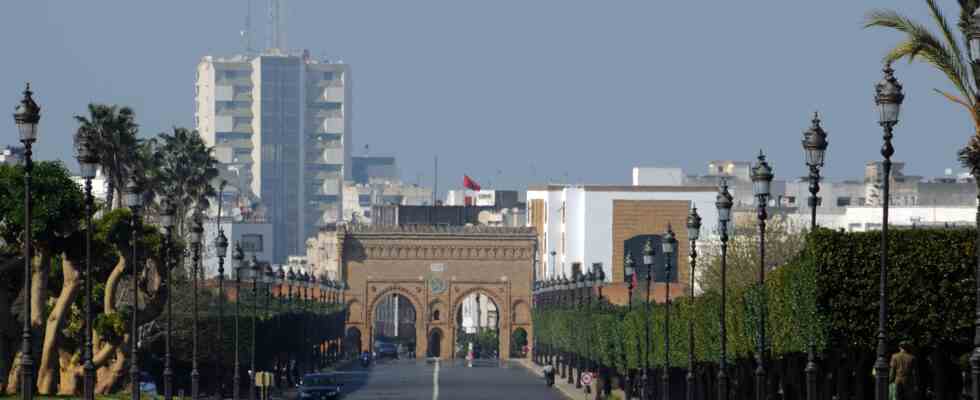background
Status: 08/25/2022 03:52 a.m
Energy, migration and tourism: Relations between Morocco and Germany are close. But the country remains a difficult partner not only when it comes to human rights.
“We want to go to the desert first, we haven’t seen it yet.” A German camping tourist is happy as he rolls off the ferry in the port of Tangier. His destination: the desert. Hardly any other country has as much to offer travelers as Morocco: historic markets, long beaches, sandy deserts, mountains and lots of culture.
But it is no longer tourism that dominates the exchange between Germany and Morocco. Andreas Wenzel, Managing Director of the Foreign Trade Chamber in Casablanca, says that in just ten years Morocco has become an important investment location for German companies in Africa and is now second only to South Africa.
40,000 jobs created in Morocco
“In particular, the automotive industry and the electrical industry have invested here in Morocco and use the advantages of the location to supply markets in Europe from Morocco,” says Wenzel. German companies have created around 40,000 jobs in Morocco.
What Andreas Wenzel can also prove with numbers: The diplomatic crisis was not able to choke off the private sector exchange between the two countries. On the contrary: The year 2021 stands for a record growth in trading volume. The investments exceeded the 1.4 billion euro mark. Tendency also this year: strongly increasing.
The reason for the crisis remains unclear
But in a strategically particularly important area, the rift with Morocco caused damage, says Wenzel: “Building a partnership in the field of green hydrogen is initially a task for both governments to set the framework for entrepreneurial action. At least in this area we have Valuable time was lost due to the diplomatic crisis, which we now have to make up for.”
The reasons for the crisis are still being speculated to this day. In any case, Morocco was upset that Germany, unlike then-US President Donald Trump, did not want to recognize Western Sahara as Moroccan territory.
Relationships better than 2021
In the meantime, both sides have stated that they want to clear up misunderstandings. Germany has described the Moroccan proposal for partial autonomy for Western Sahara as an important contribution to a peaceful solution.
In any case, the relationship is currently much better than last year, according to Morocco expert Anja Hoffmann. She has been in charge of the Heinrich Böll Foundation’s office in Rabat since last week: “I’m officially in office for the second day now. And I have the feeling that I’m arriving in the middle of a thaw. There are two countries, one in terms of security policy, one economically and should have value-oriented interests in one another, because they can only benefit from that.”
Lots of room for improvement
But the kingdom remains a problematic partner, especially when it comes to human rights, and has been accused of locking up journalists and dissidents for years, often making absurd accusations. The issue of Western Sahara being occupied by Morocco in violation of international law also remains potentially sensitive in relations.
Abdeljabbar Aarach is a professor at the Faculty of Law and Political Sciences at Hassan I University in Settat. In his view, there is still a lot of room for improvement when it comes to the quality of German-Moroccan relations: “Relationships are good, but could be better.”
counterterrorism, migration and energy
Aarach sees common interests in the areas of counter-terrorism, migration and energy. Especially against the background of the war in Ukraine, the topic of green hydrogen from Morocco has gained importance again: “This substance, hydrogen, can not only limit Morocco’s energy dependence today, but also Germany’s dependence.”
The politics professor also emphasizes the other common economic interests. He knows that many of the approximately 150 German companies in Morocco use their host country as a bridgehead to other African countries: “You can say that the country has now become a hub for trade between Europe and Africa.”
In short: There is hardly a way around Morocco. Germany has been taking this fact into account for some time: with a special reform partnership, a low-interest loan of 250 million euros and intensified cooperation – not least in the energy sector.

